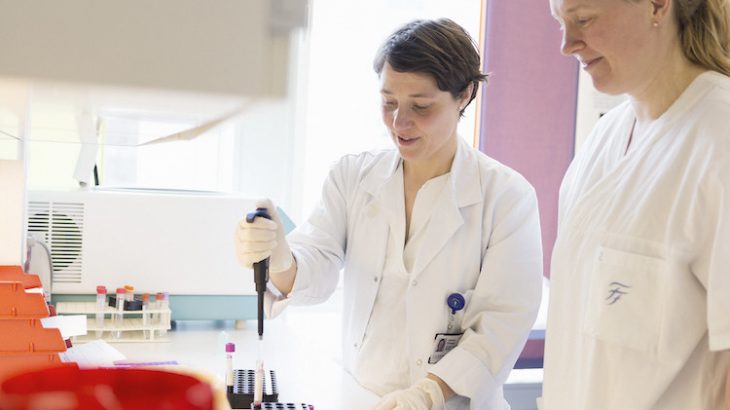Lené Gary, General Sciences editor
In November 2018, Canadian Blood Services (CBS) partnered with the Center for Blood Research (CBR) and Science Borealis to launch their first-ever Lay Science Writing Competition. The contest challenged Canadian Blood Services research trainees to showcase their work in short, well-crafted articles. The theme, “Research that matters!”, inspired the entrants to describe how their work benefits Canadian society. The contest closed in January, and the winners were announced in April.

The winners of the 2019 Lay Science Writing Competition
CBS, considered the “biological lifeline for Canadians,” is a not-for-profit organization that provides blood and tissue services to patients in all areas of Canada except Quebec.
“When I was a grad student, I would have entered in a heartbeat!” said Geraldine Walsh, writer at Canadian Blood Services Centre for Innovation, bubbling over with enthusiasm about the opportunity she hoped this contest would offer young researchers with an interest in writing.
Walsh is the inspirational powerhouse behind CBR’s Lay Science Writing Competition. She didn’t start her career as a writer. Initially, she was a research scientist studying blood platelets. When she relocated from Dublin, Ireland to Canada, she worked as a postdoctoral fellow in a laboratory where she was one of the only native English-speaking members on her team. Because of that, she took responsibility for most of the lab’s writing needs This allowed her to combine her budding interest in writing with her love for research. She eventually transitioned from the lab bench to the keyboard, taking on science communication as her primary field of work.
Appreciating the importance of research and its effective communication made Walsh’s choice of contest collaborators easy. CBR is a biomedical research institute at the University of British Columbia, and one at which CBS Chief Scientist Dr. Dana Devine is currently based. Science Borealis is a digital science salon publishing diverse voices focused on Canadian science.
Throughout our conversation, Walsh returned to how important it is for researchers to develop strong communication skills, noting that the world is “inherently biased to people who can communicate well.” She pointed out that the scientists who receive the most media coverage are not necessarily the ones doing the best or most important work. It’s their willingness to talk with the media and their ability to communicate clearly and effectively that allows them to enter the limelight. That limelight is also important for securing grants and funding.
“I feel quite passionately about helping trainees develop the communication skills they need to succeed,” Walsh reiterated. Considering that 33 per cent of Canadians consider themselves scientifically illiterate, and 43 per cent believe science is “a matter of opinion,” clear, accessible science writing has never been more important.
When I asked Walsh if CBS will be sponsoring their writing contest again next year, she answered, “Definitely.”
~30~
For more information on the Canadian Blood Services Lay Science Writing Competition, go to their blog or follow Geraldine Walsh on Twitter.
Read the winning posts:
- Optimizing cord blood donor recruitment, by Dr. Jennie Haw
- Phlebotomy to improve surgical outcomes and donor blood recovery: a redemption story, by Lily Park
- Iron deficiency in pregnancy – a matter of public health, by Heather VanderMeulen
- Creating platelets 2.0: stronger, faster and with twice the life-saving power, by Stefanie Novakowski
Banner image: Blood samples; Photo by Geir Mogen, NTNU, CC BY NC




